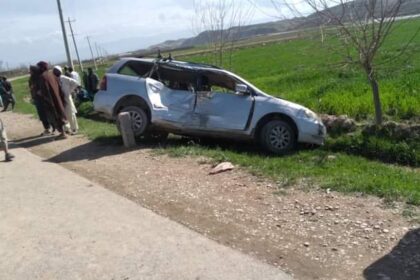RASC News Agency: On the occasion of the International Day Against Drug Abuse and Illicit Trafficking, the European Union Delegation to Afghanistan has reiterated its ongoing commitment to fighting the drug epidemic and supporting the rehabilitation of individuals affected by addiction across the country. In a statement issued on Wednesday, the EU emphasized that it remains actively engaged in supporting Afghanistan’s most vulnerable populations by allocating €26 million (approximately USD 26 million) to efforts aimed at reducing drug demand and providing sustainable livelihood alternatives. This funding is being implemented in partnership with the World Health Organization (WHO) and several other international organizations still operating in the country under challenging conditions.
“The goal,” the EU Delegation stated, “is to help thousands of individuals suffering from addiction and mental health disorders regain control over their lives and contribute meaningfully to their communities and the country’s struggling economy.” In a nation where state institutions are either absent or dysfunctional, such external commitments serve as a lifeline for those left behind. According to figures released by Taliban authorities, an estimated three million people in Afghanistan are currently grappling with substance abuse disorders a staggering number that includes nearly 40% women, many of whom were driven to addiction by trauma, poverty, displacement, or social marginalization.
Experts warn that Afghanistan’s addiction crisis has become a national emergency, aggravated by chronic poverty, mass unemployment, systemic insecurity, and the collapse of public health infrastructure under Taliban rule. The widespread nature of the epidemic is not only destroying individuals and families but eroding the very social fabric of Afghanistani society. Addiction specialists, both local and international, argue that tackling this crisis requires a coordinated national and international strategy one that transcends political posturing and confronts the root causes of drug dependency. These include not just war and trauma but also the Taliban’s past complicity in the narcotics trade, as well as their inability or unwillingness to invest in sustainable recovery programs.
The European Union, which has been one of the few remaining international actors maintaining humanitarian engagement with Afghanistan since 2021, has previously supported projects related to drug treatment centers, the training of health professionals, and public awareness campaigns in multiple provinces. Despite the mounting scale of the addiction crisis, rehabilitation services in Afghanistan remain grossly underfunded and inaccessible, especially for women and rural populations. Humanitarian organizations operating under Taliban restrictions continue to face bureaucratic hurdles and security threats, further limiting their capacity to respond effectively.
The EU’s renewed commitment, while significant, also serves as a reminder of the glaring absence of a functioning and accountable national drug policy. With Afghanistan teetering on the edge of a full-scale public health disaster, international actors warn that without a rights-based, inclusive, and transparent approach to addiction recovery, the humanitarian toll will only deepen.






